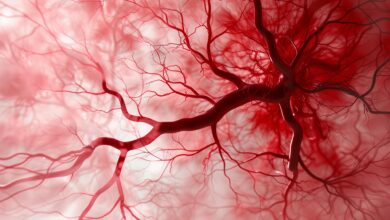Stanford Study Reveals Fiber’s Hidden Anti-Cancer Superpowers

Stanford researchers discovered that fiber digestion produces compounds that instantly alter gene perform, probably stopping most cancers.
Fiber is an important element of a healthy weight loss program, but fewer than 10% of Americans eat the beneficial each day quantity. However, new analysis from Stanford Medicine might present a compelling motive to extend consumption of fiber-rich meals like beans, nuts, cruciferous greens, and avocados.
The research, lately revealed in Nature Metabolism, reveals the direct epigenetic results of two frequent byproducts produced throughout fiber digestion. Notably, a few of these adjustments in gene expression exhibit anti-cancer properties.
When we eat fiber, the intestine microbiome produces short-chain fatty acids. These compounds are extra than simply an vitality supply for us: They have lengthy been suspected to not directly have an effect on gene perform. The researchers traced how the 2 commonest short-chain fatty acids in our intestine, propionate, and butyrate, altered gene expression in healthy human cells, in handled and untreated human colon most cancers cells, and in mouse intestines. They discovered direct epigenetic adjustments at particular genes that regulate cell proliferation and differentiation, together with apoptosis, or pre-programmed cell demise processes — all of that are necessary for disrupting or controlling the unchecked cell development that underlies most cancers.
A Direct Link Between Fiber and Cancer Prevention
“We found a direct link between eating fiber and modulation of gene function that has anti-cancer effects, and we think this is likely a global mechanism because the short-chain fatty acids that result from fiber digestion can travel all over the body,” mentioned Michael Snyder, PhD, Stanford W. Ascherman, MD, FACS Professor in Genetics. “It is generally the case that people’s diet is very fiber poor, and that means their microbiome is not being fed properly and cannot make as many short-chain fatty acids as it should. This is not doing our health any favors.”
Given the worrying charges of colon most cancers in youthful adults, the research findings might additionally spur dialog and analysis in regards to the doable synergistic results of weight loss program and most cancers therapy.
“By identifying the gene targets of these important molecules we can understand how fiber exerts its beneficial effects and what goes wrong during cancer,” Snyder added.
Reference: “Short-chain fatty acid metabolites propionate and butyrate are distinctive epigenetic regulatory components linking weight loss program, metabolism and gene expression” by Michael Nshanian, Joshua J. Gruber, Benjamin S. Geller, Faye Chleilat, Samuel M. Lancaster, Shannon M. White, Ludmila Alexandrova, Jeannie M. Camarillo, Neil L. Kelleher, Yingming Zhao and Michael P. Snyder, 9 January 2025, Nature Metabolism.
DOI: 10.1038/s42255-024-01191-9





